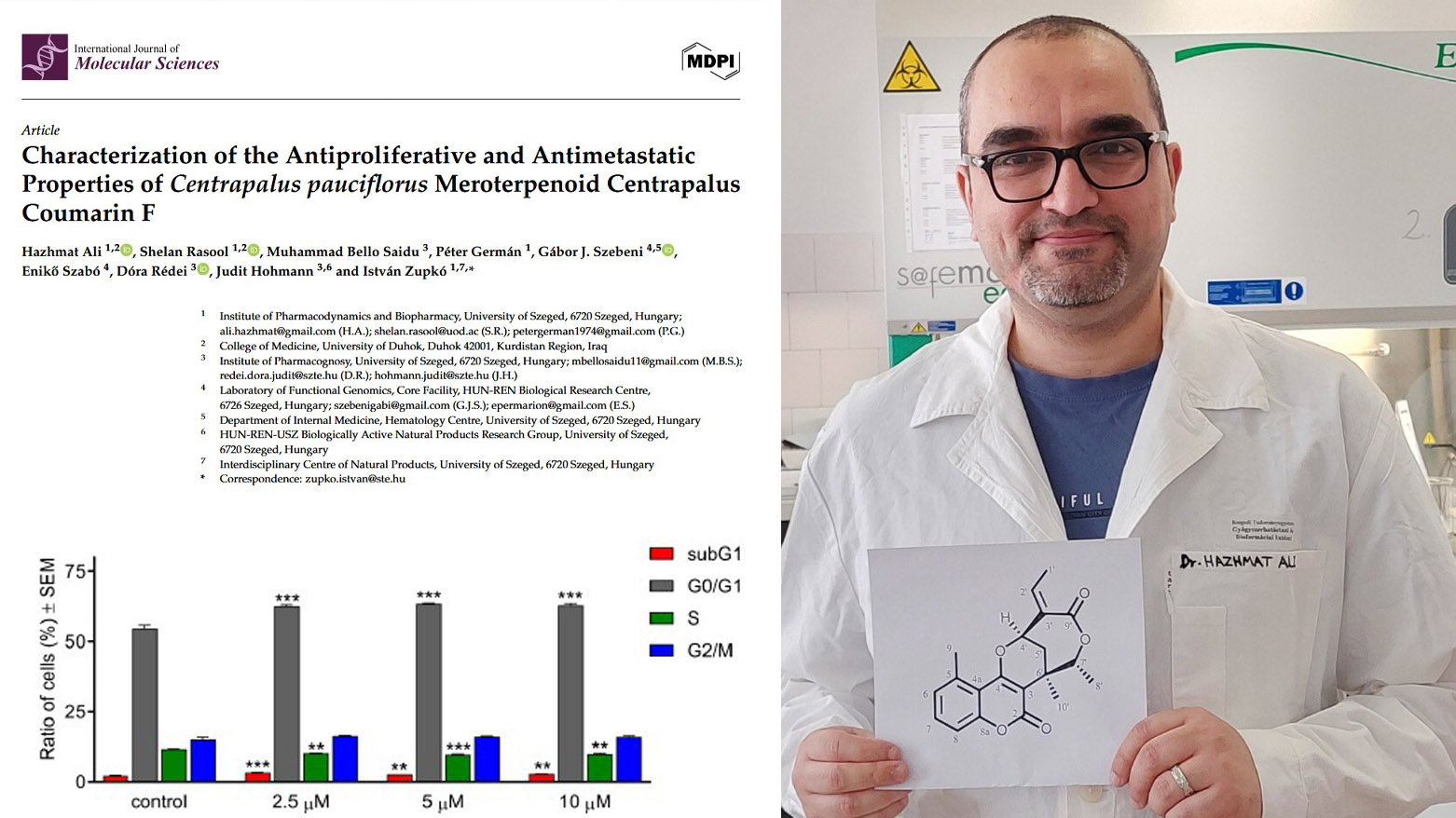Kurdish Doctor in Duhok Discovers Groundbreaking Treatment for Cancer
“We named the compound ‘CCF,’ derived from Centrapalus pauciflorus. It showed high efficacy against various cervical cancer cells, eliminating up to 95% of HPV-18-infected cells,” Dr. Hazhmatt Abdulkhaliq told Kurdistan24.

ERBIL (Kurdistan24) — In a major scientific breakthrough, a Kurdish physician from Duhok has developed a new treatment for a rare form of cervical cancer, marking the first time such a drug has been discovered globally. The new compound has shown the potential to eliminate up to 95% of infected cells associated with HPV-18, one of the most aggressive strains of the virus that causes cervical cancer in children and adults.
Dr. Hazhmatt Abdulkhaliq Ali, a professor at the College of Medicine at the University of Duhok, led this pioneering research in collaboration with nine other researchers from the University of Szeged in Hungary. The discovery was officially published in the prestigious Swiss scientific journal International Journal of Molecular Sciences (IJMS).
Speaking exclusively to Kurdistan24, Dr. Abdulkhaliq explained, “This is the first time such a treatment has been discovered at a global level. We have named the compound ‘CCF,’ which is derived from Centrapalus pauciflorus, a plant-based source.” He added that the drug has been successfully tested on multiple types of cervical cancer cells, with a particularly high efficacy against HPV-18, eliminating up to 95% of the cancerous cells.
International Recognition and Support
The research was sponsored by Hungary’s Ministry of Innovation and Technology and the University of Szeged, reflecting strong international backing for this Kurdish-led scientific advancement. The results have drawn praise from the global scientific community for their potential to reshape treatment approaches to HPV-induced cancers, especially in developing regions where medical innovation is often limited.
Dr. Abdulkhaliq has previously made headlines for his contribution to a peer-reviewed study in the American journal AIMS Biophysics, where he became the first Kurdish scientist to provide evidence on the physiological effects of X-ray exposure on the human body. His research concluded that X-ray exposure significantly alters hormone levels in the endocrine system, particularly decreasing the thyroid hormone T4, raising serious concerns for healthcare workers regularly exposed to radiation.
The Global Fight Against HPV
Human papillomavirus (HPV) is one of the most common viral infections globally and the leading cause of cervical cancer. The World Health Organization has identified HPV-18 as a high-risk strain responsible for nearly 70% of cervical cancer cases. While vaccines exist, accessible and targeted treatments remain limited—particularly in low-resource regions.
Dr. Abdulkhaliq’s discovery represents a rare and promising step forward not only for Kurdish and Iraqi medicine but for global oncology research. With continued clinical development and international cooperation, his work could lead to lifesaving treatments for millions affected by HPV-related cancers.
